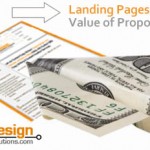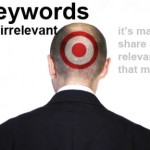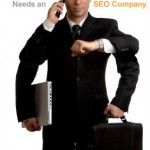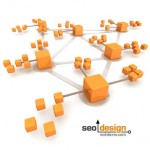 All things have their place and supplementing one in place of the other when is comes to SEO, SEM / PPC, advertising, branding or lead generation is not always the best idea. So when it comes to online marketing and implementation, which is the best for you and why?
All things have their place and supplementing one in place of the other when is comes to SEO, SEM / PPC, advertising, branding or lead generation is not always the best idea. So when it comes to online marketing and implementation, which is the best for you and why?

To answer this, finding out where you are at in the game (fledgling, seasoned or just getting warmed up) and what tactics are already in play is the first step.
The next step is to understand the sales cycle and the supply and demand of your audience and industry (and where your product or service fits in).
Aside from the obvious, you need to gauge the scope of the reasons why you are implementing each method (SEO, SEM / PPC, Advertising or Lead Generation) and pair those reasons with the best method to get the job done (within a reasonable budget and time line).
Not to take a chip off the old adage of time and money, but in reality, both are key motivators that have inherent bench marks for competition and successful online ventures.
If a solid return on investment (ROI) is your objective (which it should be if it is not yet) then two things you must come to grips with are (1) finding attainable and profitable strategies and (2) being to implement them in a timely fashion (or at least better than your competition).
What are you marketing and why?
Sales are the common objective for most, so why do anything counter-productive if you have a choice to adapt and overcome obstacles? Things such as (1) is the product seasonal (2) are their higher spikes in demand than others for certain demographics (3) what percentage of your preferred audience is online? and are they accessible to being closed using the method you are employing?
Are you trying to brand your product when you should be focused on conversion? Are you satisfied with attracting the wrong type of visitors when you should be researching your industry for a niche or specific nook?
Are you overselling your offer in the wrong arena with marginal results?
Why appeal to the wrong audience when you could be raking in new customers by the dozens, hundreds or thousands of new consumers with a different tactic in a new arena. By diversifying your approach such as editorial or advertorial marketing vs. PPC conversion optimization can take on a new light.
It truly boils down to margin and return on your capital outlay, if you are losing money or not producing a positive cash flow due to barking up the wrong tree with your SEO, advertising or marketing efforts, then it is a time to reevaluate priorities and get back on track.
Branding
According to wikipedia’s definition of branding – A brand is a collection of images and ideas representing an economic producer; more specifically, it refers to the descriptive verbal attributes and concrete symbols such as a name, logo, slogan, and design scheme that convey the essence of a company, product or service.
Another snippet implies – A brand is a symbolic embodiment of all the information connected to a company, product or service. A brand serves to create associations and expectations among products made by a producer. A brand often includes an explicit logo, fonts, color schemes, symbols and sound which may be developed to represent implicit values, ideas, and even personality. The key objective is to create a relationship of trust.
Branding is great when your selling high ticket items, but is that the best way to sell widgets on your e-commerce site? In other words, does the visitor really care who you are? If you are trying to brand before they really have had the chance to determine if they even need your product or not or using the wrong method to convey your value proposition, then you are participating in an exercise of futility.
Or what if what your selling already has enough of a brand associated with it (granted it is not your own product) and they are just looking for the best value?
Second guessing your market and trying to close them on who you are vs. what they get from buying the product is a risky process.
It is better to project a specific conversion objective for each product and page, work out a fair conversion rate (that pays for itself and its own promotion), then scale another based on your success, instead of trying to brand when you should be closing them on the product in question.
So much for funneling their attention to a conversion objective if you are speaking to the wrong audience. The value of pairing your solution to the problems of your preferred audience, then having the means to communicate the benefits in a way that they are compelled to purchase is the ultimate goal.
Anything else is throwing time and resources down the drain (two resources that should not be wasted). Do you want to create a great resource site for the visitor to educate them on the benefits so they can pat you on the back and say good job or would you rather get the sale?
The trick with branding is, you have to know when you need it and when it just is not needed. If you are a successful off line company, chances are you have a budget, since you have already mapped out your cash flow and have an allocated budget for advertising (either based on investment, debt or positive cash flow).
In addition, many successful offline companies have already built their brand and are just looking for a way to promote their livelihood (even more offline sales). Successful offline brands know that 81% of all their online traffic uses their brand name (despite what they do to change it) so for them, visibility is the key.
With a conversion metric that has multiple layers involved, the use of viral marketing (for shock value) is a better way to get your brand in front of new eyes, who can develop their own unique supply and demand based relationship with the company.
So, for them conversion implies tactful exposure that plants the seed for future business unlike a smaller competitor who needs to sell you something or generate a lead for another round of a tiered sales process to regain the initial outlay and expenditure.
For example, if you know all you have to do is close one lead that results in several thousand dollars (such as a head hunter / recruiter) then the methods you use will drastically differ from a small retailer who is operating on a fair margin (40-50%) on small ticket items. Margin is the gatekeeper for lack of internal resources or which tactics you employ for each round of promotion, marketing or advertising.
Dollars in to dollars out has a distinct reality (since numbers never lie) and based on the methods you utilize to reach the conversion objective will determine the extent of your return. Sometimes you are too close to see which changes need to be implemented to create that appeal without having to hemorrhage funds to zero in on a simple assessment such as am I getting the most from each dollar invested?
Advertising
According to Wikipedia’s definition of Advertising – Advertising is a form of communication that typically attempts to persuade potential customers to purchase or to consume more of a particular brand of product or service.
Many advertisements are designed to generate increased consumption of those products and services through the creation and reinforcement of “brand image” and “brand loyalty”. For these purposes, advertisements sometimes embed their persuasive message with factual information.
Every major medium is used to deliver these messages, including television, radio, cinema, magazines, newspapers, video games, the Internet and billboards.
Sometimes you have to go back to the who, what, why, when and how and just look at the basics. If you have money to burn, then looking for banners or 125 x 125 ads that funnel traffic back to your site is ideal.
Remember for every 7 impressions your ad only sticks once for most. Advertising is all about location, location, location. Your advertisement can have great exposure but have a very low click through rate or on the contrary find the right site to advertise on and have hundreds or thousands of visitors funneled to our site, but you have to do the work to find the right sites that are most conducive for your business.
Most businesses will not even consider advertising online unless they have a healthy margin with excess funds available to find the next big promotional method. It is not unlikely as well that brands or companies who are involved with advertising on other sites are looking for ways to reinforce their mental / brand image in the SERPs (search engine result pages) as part of a long-term brand strategy.
For example, your at a great site like Tech Crunch, ProBlogger or CopyBlogger and you see an advertisement from a sponsor, it makes an impression on you, even though you don’t click now.
However, the next time your skimming through search results (when you are hot on the trail of a related product) and you stumble across one of the companies / brand you saw on their sites. The likelihood of you clicking that search result has a much higher percentage because of the osmosis of trust the authority site impressed upon you.
The infamous ghost impression / third party referral finally hits it mark, even if it is days or months later, the all to familiar (yea, I have seen this company before) phantom impulse comes into play and conversion hits its mark.
In short, although advertising in this fashion can be part of a short-term (click here now) or long-term strategy (don’t forget me when your ready to purchase), it is a more difficult metric to track, since you never know when a person may have been influenced by your branding efforts. There is nothing wrong with testing the waters, as long as you have a good measuring stick to gauge return on investment.
Lead Generation
According to Wikipedia’s definition of Lead Generation – Lead generation (commonly abbreviated as lead-gen) is a marketing term that refers to the creation or generation of prospective consumer interest or inquiry into a business’ products or services. Often lead generation is associated with marketing activity targeted at generating sales opportunities for a company’s sales force.
The nature of lead generation depends entirely on the decision process of the buyer. For complex products and services requiring a complex decision process, the keys are identifying the most likely prospects and then educating and qualifying them before deploying more expensive sales resources. The education benefits the buyer; qualification benefits the seller.
This gradual lead cultivation process can go on for months and involve several individuals involved in evaluating a solution.
Lead generation is typical for high ticket items so to quantify the benefits the sales process is requires more elaboration, supporting materials or validation to encourage the prospect to move forward.
Tactics that typically accompany this type of marketing are giveaways or incentives of employ permission based marketing. Sign up now and receive a free “product tailored to your needs”, as the lead gets passed off to the individual or sales team with “the right stuff” to close the deal.
A lead is pure potential, not just thinking about the short-term objective such as if or when they purchase, but more along the lines of accessing their network of friends and associates and what types of referrals can occur as a result of one satisfied customer who becomes an evangelist on behalf of your business.
Referral based marketing and lead generation can work hand in hand to produce a steady stream of new and interested consumers. So, if you are not utilizing this model (since you feel it may not apply) look beyond the obvious reasons of why you shouldn’t and look for affiliate opportunities if they are conducive to your overall conversion objective.
Would you need to go this route for most businesses? It depends on what you sell, but the more traffic you have that can diversify your income stream, through referrals or incentives, the less dependent you are on one product or service alone.
So, by pairing products or services with distinct objectives such as funneling leads to your business or thinking of ways your business can offer advertising to funnel leads to others is a viable form of alternative income. However for most, lead generation is performed for in house purposes to gain a foothold for products that require a more dedicated process to close the sale.
SEO and SEM/PPC
Obviously coming from the perspective of SEO and organic optimization, the need for PPC advertising exists as a way for websites who do not wish to accommodate the changes needed to rank naturally using organic SEO to reach the same type of consumers on search engines.
Going back to margin, if the margins are high enough such as company A makes $100 per sale per item sold and it only cost them $10 in PPC to get that sale, then PPC is an obvious solution. PPC can provide relevant traffic based on people searching for related products and services, not to mention the company can keep elements of their brand intact since each landing page is sculpted for optimal performance not SEO value.
My suggestion is that a company such as this also focus on a beta test with SEO and organic website optimization so they can determine how to increase overall exposure and sales with alternate methods.
As powerful as PPC is, it only appeals to a small audience vs organic search engine positioning. Only 2 out of every 10 people click PPC results and on a scale of 1 to 10 when it comes to trust, editorial reputation and rankings carry more weight than sponsored ads (since you have to earn the spot to maintain a high ranking).
The translation here is, if you are experiencing great results with PPC, then why rent when you can own. By assessing the strength of the broad match terms that funnel traffic to your PPC buzzwords, you can replicate them organically over time to wein your websites dependence (like a puppy from the mother) from such an expensive medium for sales conversion.
As stated from the onset, all things have their place, so knowing when to use them, why and to what extent is the real solution for finding the proper balance for your online marketing efforts.











Before your blog visit I was having the question does SEO’s have the future? I mean With several other Internet marketing solutions doing well, chances of the SEO industry doing well is bleak. Clients expect a return on their investments and don’t need a collection or stockpile of links and articles anymore. While they understand page rank matters, it is search engine positioning that makes an ultimate difference at end of the day. what you think all around..!
Nice writing. You are on my RSS reader now so I can read more from you down the road. Before your blog visit I was having the question does SEO’s have the future? I mean With several other Internet marketing solutions doing well, chances of the SEO industry doing well is bleak. Clients expect a return on their investments and don’t need a collection or stockpile of links and articles anymore. While they understand page rank matters, it is search engine positioning that makes an ultimate difference at end of the day. what you think all around..!
Hi Dear I have read your posting, you have shared very good information related to Lead Generation and SEO. Thanks for sharing this information.
This is awesome! I am pretty impress with this effort. It has lot of opportunity to get knowledge and tips to get start home based business.
Blog is really informative and entertainng same time.
I can feel that you have put in hard efforts. Good job!!
These PPC guys are marking up the “picks and shovels” big time.
Organic is so much smarter and a bit easier to achieve than they would have you think.
There are places that PPC will work but anytime you have a choice, look at organic results and realize more profits.
Realy would like to say thanks to all of you guys. Shairing Knowledgeble information here.
Some excellent ideas here I don’t have a news blog as such but there are some great tips that I plan to use.
A combination of SEO, SEM / PPC, advertising, branding and lead generation is usually effective rather than focusing on one. In fact, you could argue that all of these capabilities are part of lead generation. Businesses should stay focused on the end goal though, revenue generation, to determine where to focus.